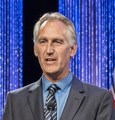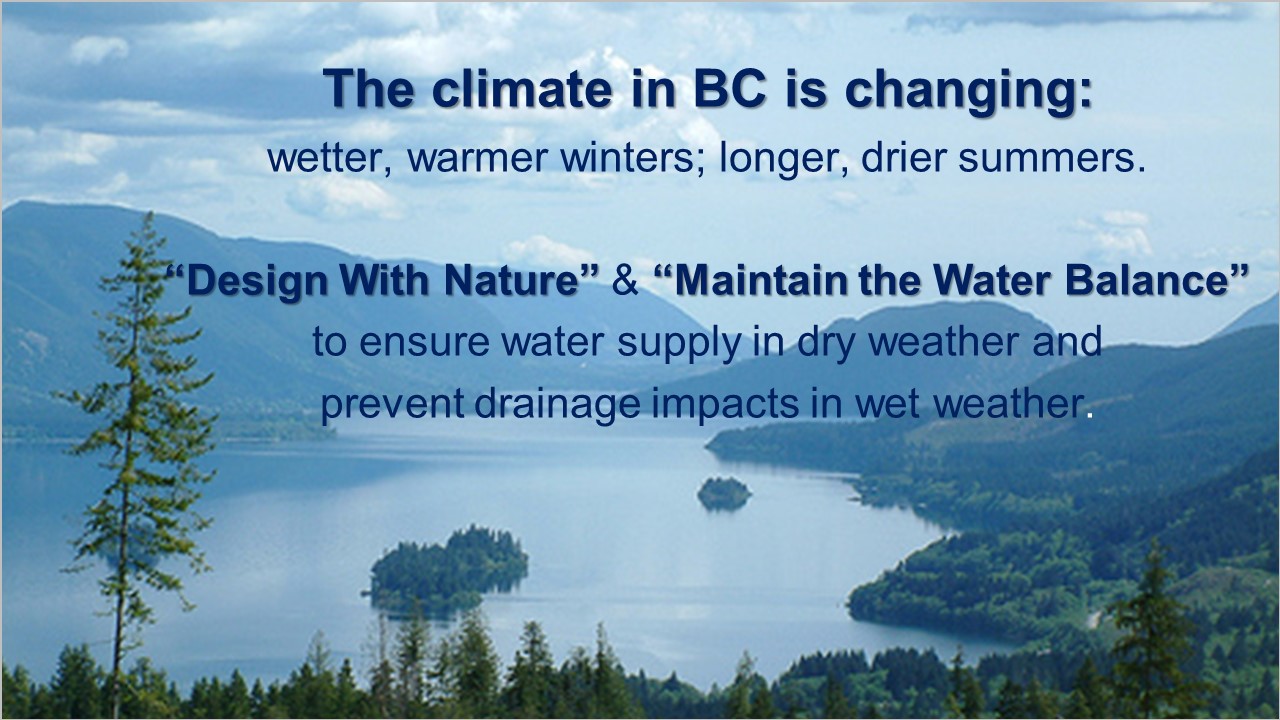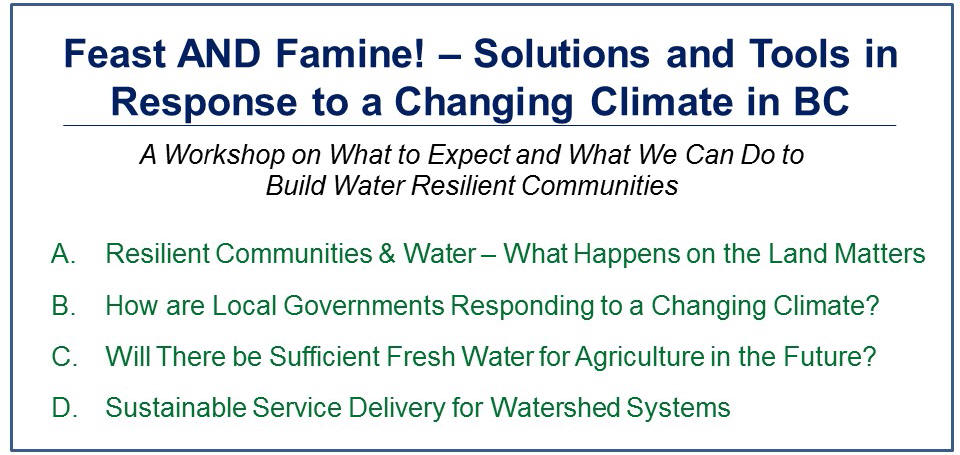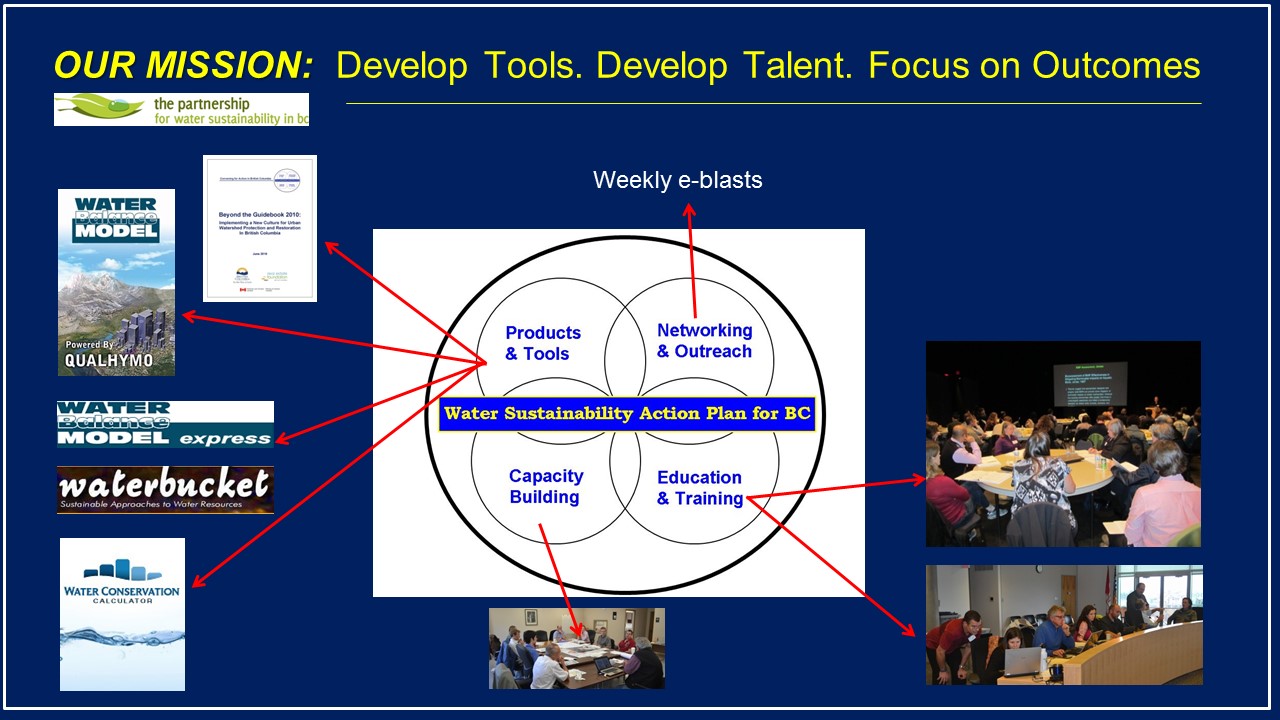Build Water Resilient Communities: Partners release program overview for “Feast AND Famine Workshop” (December 1, 2015)
Note to Reader:
On December 1, 2015 the Partnership for Water Sustainability in British Columbia (“the Partnership”) and the Irrigation Industry Association of British Columbia (“IIABC”) are again joining forces to co-host a workshop that is topical. The 2015 Drought is front and centre.
The Partnership and IIABC have released a Program Overview that provides a detailed picture of what to expect in each of the four modules that comprise the workshop day. To download a copy, click on Feast AND Famine! – Solutions and Tools in Response to a Changing Climate.
To Register:
To register for the workshop, go to the IIABC website:
https://www.irrigationbc.com/irrigation/courses/view_scheduled/166
The ‘New Normal’ in British Columbia
“The ‘new normal’ in British Columbia is drought and flooding. The summer dry season has extended on both ends and we can no longer count on a predictable snowpack and reliable rain to maintain a healthy water balance in our watersheds,” states Mike Tanner, Chair, Feast & Famine Workshop.
 “Annual volumes of water entering and exiting our regions are not necessarily changing; instead what is changing is how and when water arrives – it is feast AND famine! Adaptation is local in application. Hence, this workshop on responding to a changing climate is about solutions and tools that are being developed in BC through collaboration to support practitioners and decision makers to take action at a local level.”
“Annual volumes of water entering and exiting our regions are not necessarily changing; instead what is changing is how and when water arrives – it is feast AND famine! Adaptation is local in application. Hence, this workshop on responding to a changing climate is about solutions and tools that are being developed in BC through collaboration to support practitioners and decision makers to take action at a local level.”
Program Overview
“Water is a form maker. It defines communities. Also, the consequences of our water-centric decisions ripple through time. Recognizing these factors, our workshop is designed to spark a conversation and ultimately inform a shared water-centric vision for British Columbia,” states Ted van der Gulik, Partnership President. Prior to retiring from government, he was the Senior Engineer in the BC Ministry of Agriculture.
“The workshop program is structured as four modules and is cascading – from high-level visioning to ground-level applications. Each module has an educational objective. Adaptation to a changing climate is a unifying theme. Both the urban and agricultural perspectives are represented.”
Each Module Has An Educational Educative
“The Partnership for Water Sustainability is responsible for delivering the Water Sustainability Action Plan for BC,’ explains Kim Stephens, Partnership Executive Director.
Director.
“The Partnership mantra is: we develop tools; we develop talent; we focus on outcomes. The workshop is an initiative under the Actiom Plan umbrella. Because we have an educational responsibility, we have identified a ‘learning objective’ for each module.”
“For example, the educational objective for Module A is that participants will understand that accepting risk opens the door to creativity and results in innovation. If we all know the context for action, then together we can change the culture and instil a new ethic. And if we achieve the latter, we will create a legacy.”




